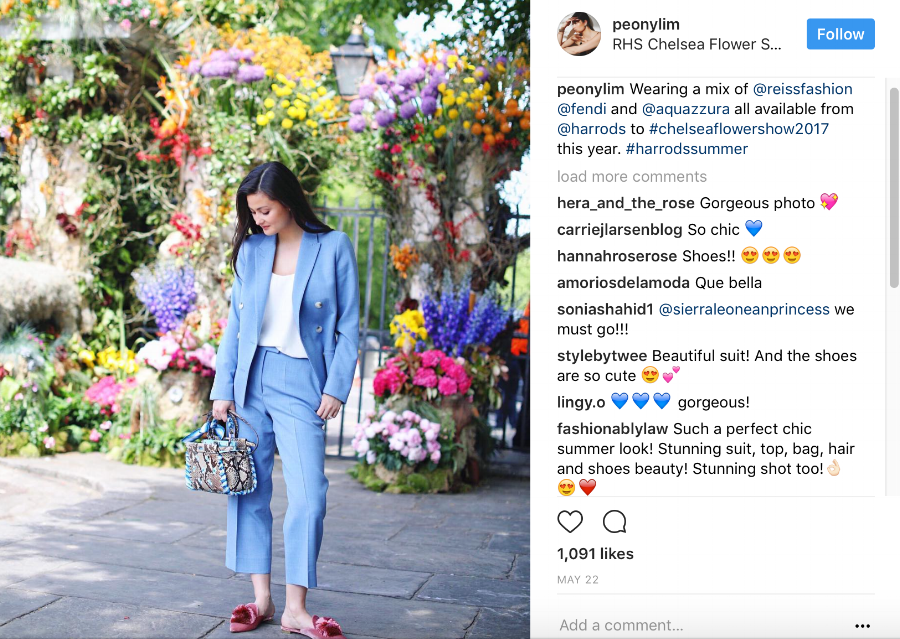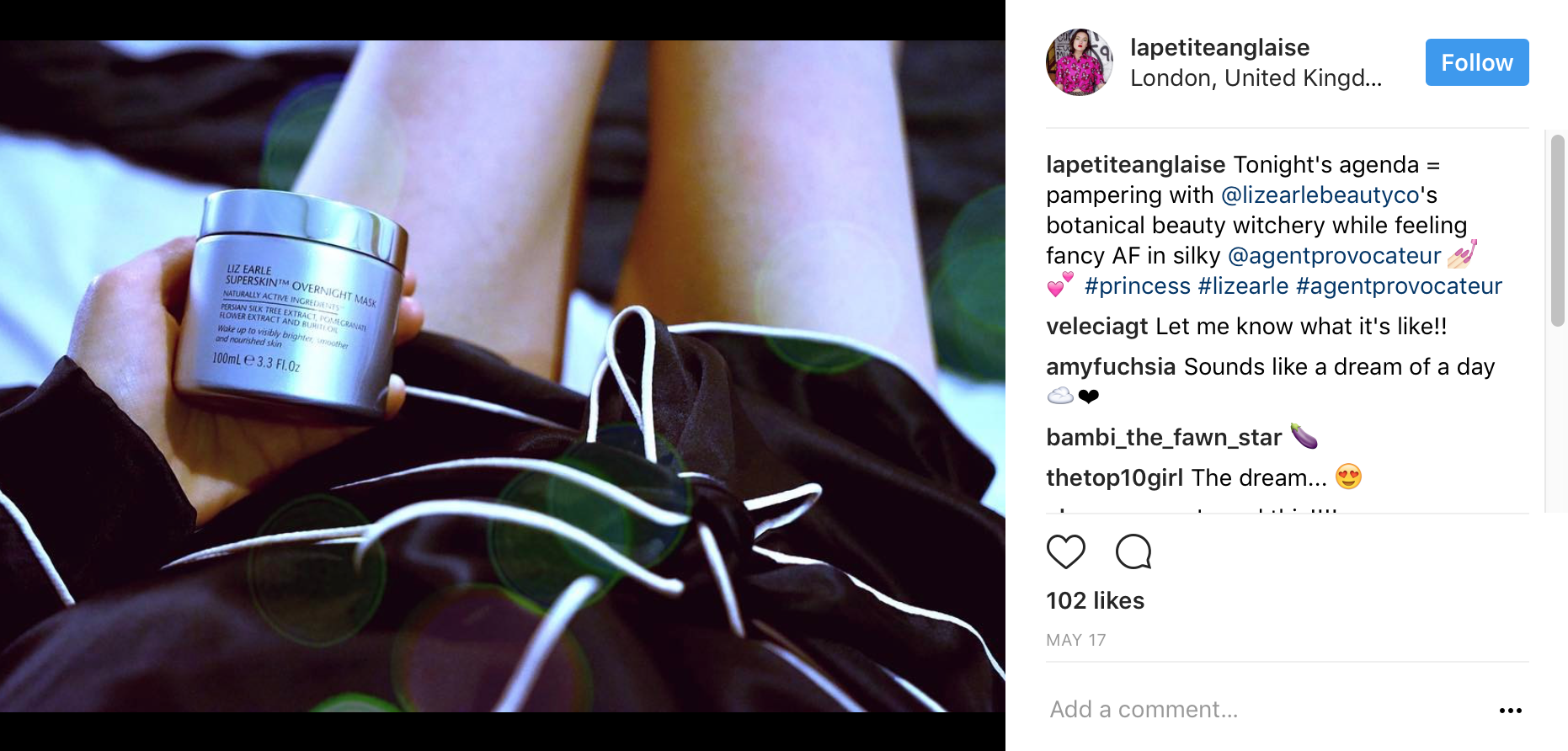
image: @peonylim Instagram
Social media influencers, publications, and the brands with which they are associated are finally being called out on a larger scale for non-disclosure of material connections, with both the Federal Trade Commission (“FTC”) in the U.S. and the Advertising Standards Authority (“ASA”) in the UK slowly beginning to clamp down on ethically questionable and oftentimes misleading practices.
More recently, the Competition and Markets Authority (“CMA”) has joined the UK battle, warning celebrities and influencers – as well as brands and publications – against endorsing products on social media or posting paid-for content without clearly stating that they had been compensated to do so.
As part of their investigation, the CMA found that between March and July 2015, Manchester-based agency Social Chain, for instance, had conducted 19 marketing campaigns featuring “widely-followed social media personalities” endorsing a range of apps, movies, and games, all without notifying their readers or reviewers that the content was, in fact, paid for. These campaigns involved a total of 43 individuals and 15 brands, featuring content on a number of platforms including Twitter, Instagram, and YouTube.

image: @lapetiteanglaise Instagram
Social Chain and its directors, Steven Bartlett and Dominic McGregor, have since signed agreements with the CMA to ensure that they “will not design, draft, prepare, or cause to be published editorial content which promotes a product but does not make clear that a trader has paid for the promotion,” as per the requirements of the Consumer Protection from Unfair Trading Regulations 2008.
In concluding their investigation, the CMA released an Open Letter to marketing departments, agencies, and their clients advising them to ensure the clear identification of paid promotions. Moreover, the CMA suggested that influencers and agencies should refuse requests from businesses to arrange unlabeled paid promotions – whether they be sponsored editorials or paid for job postings. The CMA has also used this letter to warn against the use of fake reviews.
It could be that we are finally seeing traction in the movement to protection consumers from the now well-recognized influential power of celebrities and social media personalities. If we are lucky, this CMA investigation, paired with increased attention by the FTC and the ASA, might be indicative of a shift in attitudes towards enhanced consumer protection in a social media context.
Stephanie Rose Kelly is an LLB Graduate from Glasgow, Scotland. Despite now running her own business and working as Digital Marketing and Social Media Executive, she has maintained a keen interest in several areas of the law, particularly Intellectual Property Law.







